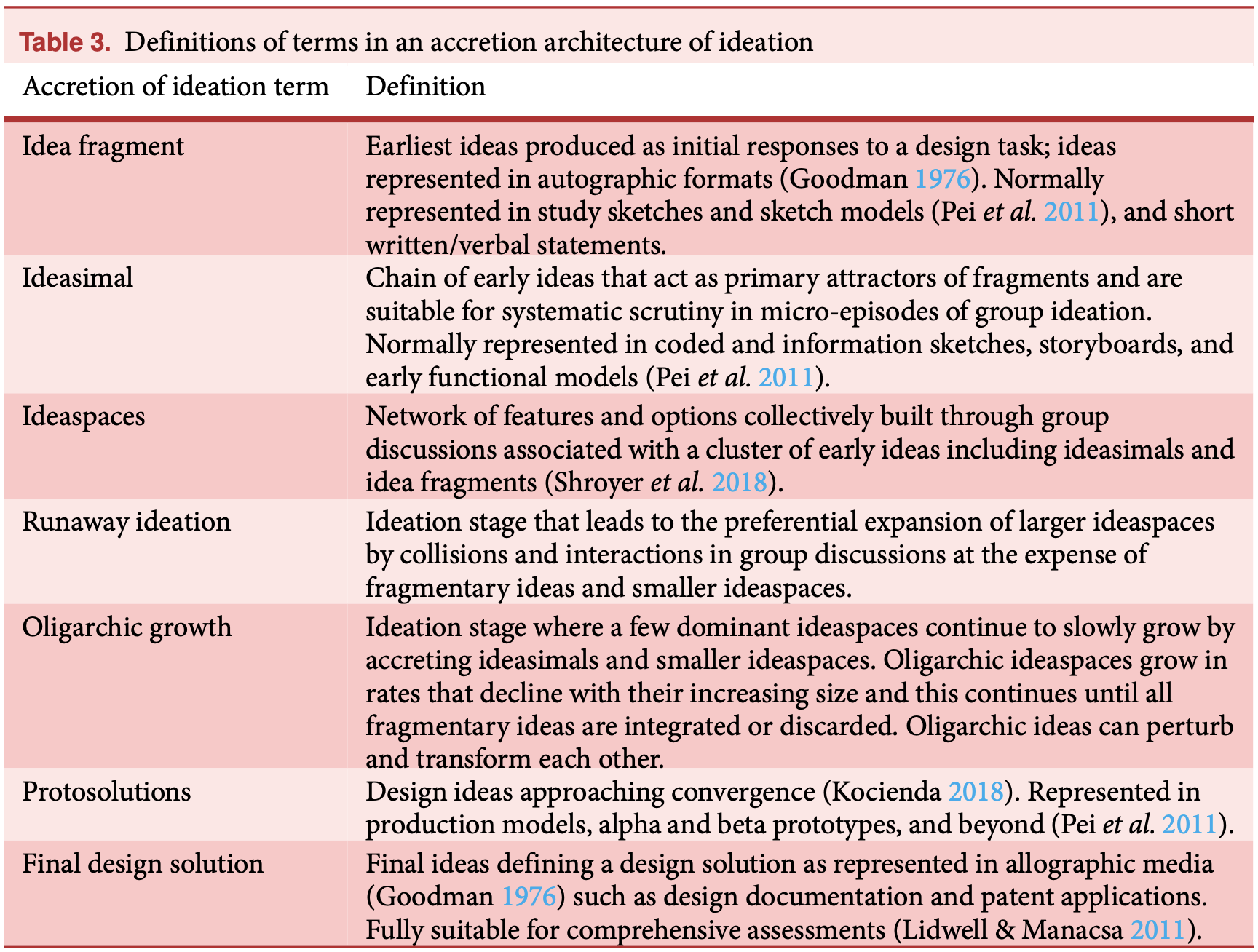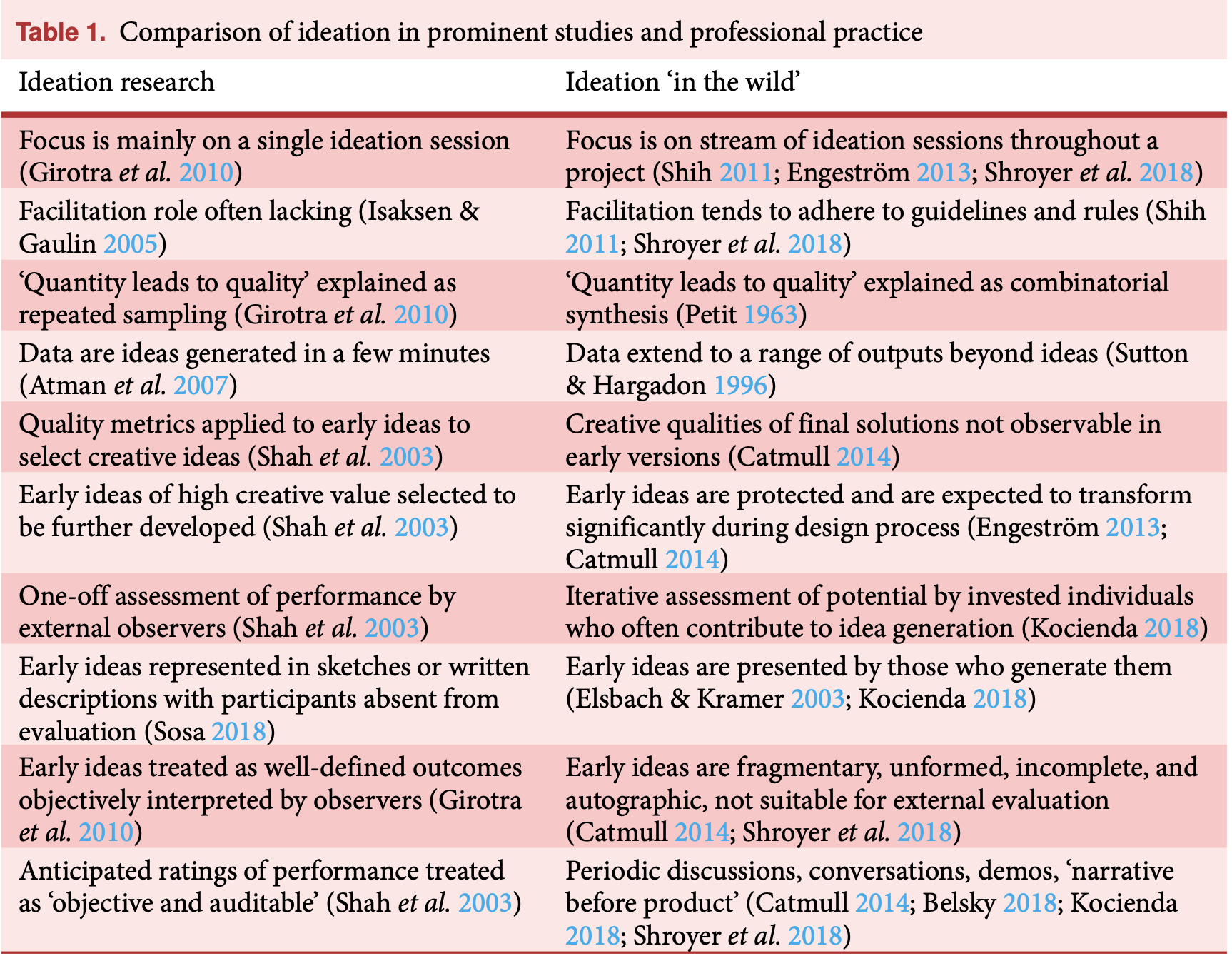Andyʼs working notes
About these notesSosa, R. (2019). Accretion theory of ideation: Evaluation regimes for ideation stages. Design Science, 5, e23
Most academic work on ideation is “essentialist”: people generate ideas until one seems promising, then they run with that. By contrast the theory of accretion “tackles the question ‘Where do ideas come from?’ in new terms: early ideas seem to come incomplete. Early ideas seem more like marsupials than placental mammals or oviparous species: they first emerge fragile, undone, and unfinished. They then form in stages of growth governed by ideation physics that we have yet to understand.”
They develop a complex theory of “ideasimals” which accumulate into “oligarchic growth” and protosolutions. A bit out there, but actually resonates with my experience pretty well at Apple.
The paper is informed a lot by Ken Kocienda’s account of keyboard invention.
Separately, see this amusing table of contrary properties between academic studies of ideation vs. what professionals do:
Would be interesting to make something like this for learning.
Via Joel Chan